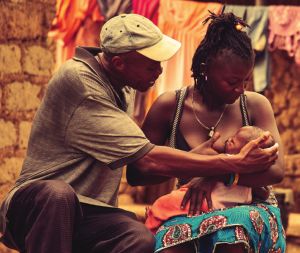Barriers and facilitators of exclusive breastfeeding: Findings from a Barrier Analysis Conducted in Mwenezi and Chiredzi Districts, Zimbabwe
Abstract
A barrier analysis study was carried out in Mwenezi and Chiredzi Districts of Zimbabwe, to guide the development of a community-based behaviour change program. The aim of the barrier analysis was to identify factors that influenced a woman’s infant feeding and care practices. This paper reports the findings for one behaviour, exclusive breastfeeding. The study was based on the methodology from “A Practical Guide to Conducting a Barrier Analysis” (Kittle 2013). Structured in-depth interviews were administered to 91 women who were mothers of infants under the age of six months, 46 of whom who were exclusively breastfeeding and 45 who were not. Issues pertaining to self-efficacy, social support and perceived risks and benefits, as well as cultural and community norms and rules were identified. The qualitative analysis included sorting and identifying themes. Common barriers for exclusive breastfeeding were influence from the mother-in-law, high maternal workload, and perceived breast milk insufficiency. The main enablers were breastfeeding knowledge, the presence of a spouse/partner who assisted with chores and nurses who provided breastfeeding information. The insights gained from this study were used by Nutrition Action Zimbabwe to develop a behaviour change programme that was implemented from 2018-2020.

Authors retain all copyrights. In making a submission to World Nutrition, they are certifying that all material is theirs except quotations, as indicated, and that they have obtained permission for any photos, tables, or graphics taken from other publications or websites.




